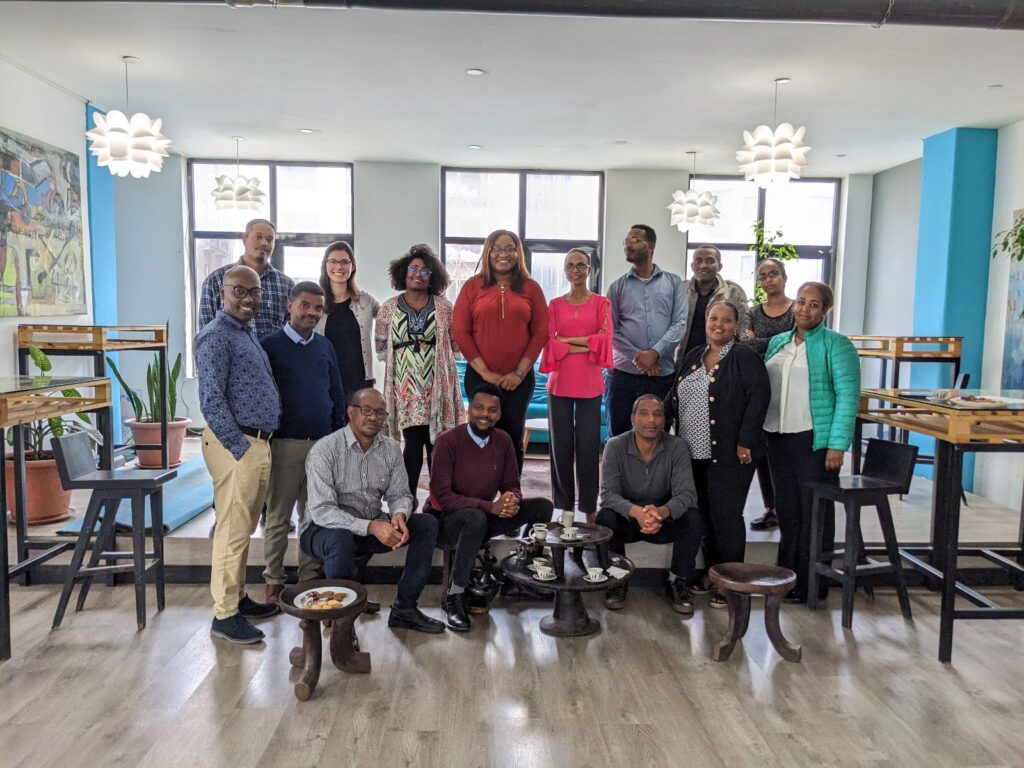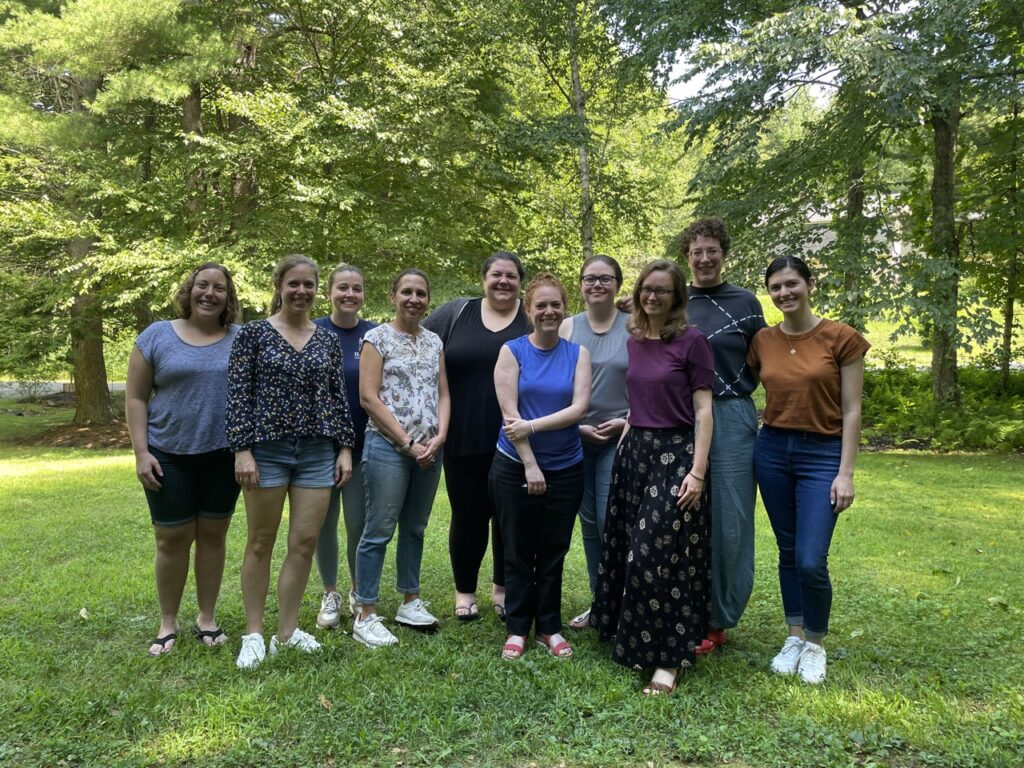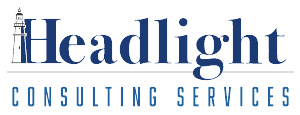Author: Rebecca Herrington
In late 2018, with a dream of embedded learning partnerships and systems change, I started my own consulting business to deliver data-driven decision-making through systematic design support, in-depth monitoring, evaluation, and learning, and facilitated organizational change processes. Headlight Consulting Services (Headlight) grew quickly–from just myself and a part-time partner in 2019, to our first staff hire at the start of 2020, to 14 staff the following year. In April 2023, we won our first prime award with USAID, the five-year Learning Adaptation contract (2023 – 2028). Learning Adaptation is part of the broader Learning Project that provides innovative approaches to collaboration, learning, and adaptation (CLA) to the USAID/Ethiopia and USAID/Djibouti missions to drive program results; with Headlight’s support focused on systematic CLA, Developmental Evaluation, and systems-based design services.
We are deeply grateful and excited about this milestone, and it also means we’ve grown quickly… really quickly. There are a lot of learnings with any business’s first prime opportunity–from understanding the myriad of compliance requirements, scaling up systems for more sustainable growth and again… compliance, and interacting with the client directly, balancing needs, wants, and resources in an established system but with the desire for change and innovation. It also means we’ve needed more staff. And, training folks on complex technical approaches while also ensuring a consistent and healthy organizational culture during growth spurts is no easy feat.
As we close on 2023 and look forward to celebrating our fifth anniversary this coming February, there are a few key approaches that I think have been pivotal to our success in managing not only this first prime opportunity, but our growth overall.
- Growing with sustainability in mind from day one. When Headlight started, I decided to establish systems and practices that were sustainable beyond just a two-person consulting firm. I didn’t want to cobble together the bare minimum of what would work to get by, only to face more significant problems down the road as those systems broke at likely inopportune moments. When we started, I immediately set up a full Quickbooks accounting system and a compliant chart of accounts, built out standard operating procedures for core tasks, thought strategically about medium to long-term opportunities instead of taking whatever work came our way, established fixed information management systems and knowledge management practices, and so much more. These efforts, all grounded by an organizational theory of change that we actively test and principles that are core to staff performance, have been essential to managing our growth proactively instead of letting it overwhelm us.
- Dedicated onboarding followed by immediate technical work involvement. I wanted to make sure new staff weren’t just floating in the ether when they started at Headlight, but were grounded from Day 1 in our culture, ways of working, systems knowledge, and clear expectations. I learned a lot of lessons when onboarding our first staff solo in the midst of my own travel for contract work, building out HR systems, and then dealing with the start of the COVID-19 pandemic. And we’ve applied lessons learned from every onboarding since then. Headlight has a full hour-by-hour agenda for at least the first week for new staff, dedicated work planning of assignments for the first month, and we leverage members across the whole team to introduce the start-up content to help new staff get integrated and familiar with their colleagues as quickly as possible. We’ve found this approach enhances early integration, navigation of systems, and team bonding. And, early involvement in technical work helps everyone to set expectations and keep the momentum.
- Making space for learning and mentorship. This is our most essential approach at Headlight. It is a part of every decision, practice, and expectation, every day. I have seen the results of detrimental practices like guarding information, “figure it out” culture, and paranoia centered on competition that hinders doing the best development work possible in our field, and I promised myself that Headlight would be different or it wasn’t worth doing. We spend a significant amount of our time mentoring and teaching staff since much of what we do in the development field, especially the complexities of real-world application, is not taught in classrooms. Staff, likewise, invest and commit to their own learning and readily share newly gained knowledge with colleagues. Our culture is grounded in questions, bringing rationale, trying without repercussions, and dedicating time to training and feedback. This takes an extensive investment of time, resources, and patience, but every minute of it has been worth it. It results in higher quality work, and our mid-level staff members are able to walk into any donor or senior staff meeting and engage in technical discussions on evaluation design, behavior change pathways, and systems thinking. And, the trust, engagement, ownership, capacities, and excitement of staff we’ve seen from these practices is awe-inspiring.
- Local-focused staffing strategies grounded in trusting our local staff to lead. Development work has not always been grounded in altruistic intentions, to say the least, and we carry the biases of institutionalized racism, broken non-inclusive systems, and prejudice with us even when actively fighting against them. The international development field has been talking about being “locally led” for a long time without meaningful systems-level progress, and I promised myself I would be aware, actively learn, and fight for this change in my career. Part of this effort is pushing for local leadership in every way we can. This means we don’t propose full-time expat staff for country-specific work. We try to minimize home office visibility when working with clients, providing dedicated backstopping but letting our local staff lead the conversations, presentations, and decision-making. We invest in robust skills sharing since not everyone has the same opportunities, access, or exposure to different technologies and skills training. We work on exercising the humility to assume that we don’t know better and reinforce a culture where everyone’s contribution is valued and encouraged. And above all, we trust and value our local staff deeply.
These past five years have been a wild ride. There have certainly been too many late nights, some naive choices, and an abundance of lessons learned along the way, with more to come. But, I am so immensely proud of the sum of our parts. Being able to offer new staff benefits every year, sustain now 20+ staff, provide quality services to clients while also producing free how-to resources to contribute to the broader field, sustaining our learning and trust-based culture through rapid expansion, a global pandemic, and other global shocks, all to reach our first prime contract in four and a half years… I call that a tremendous success. And, we’re just getting started.
Headlight’s Addis Office Team

Headlight’s US-based Home Office Staff






Comments
December 14, 2023 at 11:35 am
Congrats to the Headlight team! The values of your business – from trusting local leaders to committing to rigorous evaluation practices is a model for USAID partners! I’ve really enjoyed following your work and look forward to more to come. – Amanda Satterwhite
December 14, 2023 at 6:52 pm
The foundation is set! Your DE team’s support has been instrumental in our early success as a Local Implementing Partner for our new and big USAID project. Your teams unreserved support, leadership and expertise have left a lasting impression. Your company’s exponential growth is a true inspiration. I have no doubt you team will continue to achieve great things in Ethiopia and Djibouti. All the best for your upcoming projects!